How and when ticketing fees are disclosed to consumers has been a hot-button issue for a number of years. Most ticketing companies show one price to the consumer, only to have fees show up at the final step of the transaction – after the consumer has entered personal and payment information – with the price jumping substantially, as much as 30 percent.
Ticketing providers speaking at the FTC’s “That’s The Ticket” workshop regarding online ticket sales in June 2019 agreed with the value in reforming that practice to make things clearer for consumers. But they also agreed that it is very difficult for any one of them to take the first step, as consumers have become so conditioned to expect those last-minute fees on ticket marketplaces (both primary and secondary), showing “all-in” prices at the outset actually makes consumers less likely to purchase. This is because they see that higher price while expecting fees to be added at the end of the transaction – while competitors that continue to hide the fees and show an artificially low price at first benefit.
Speaking at the event, FTC Commissioner Rebecca Slaughter issued a stern warning to companies after they universally agreed all-in pricing would be better for the industry, but nobody wanted to be first: Clean it up, or we’ll have to clean it up for you.
Some companies have taken her words to heart.
TicketNews surveyed the ticketing landscape, and found that a majority of popular ticket sale and resale marketplaces are now offering consumers the option of viewing ticket prices including fees up-front. Most offer this option as a toggle when searching for tickets, meaning it must be selected in the website’s search function, but the advantage for consumers is clear. Viewing ticket prices including fees from the start of one’s search allows for a true price comparison, without the burden of giving ticket companies your email address or credit card information to find out what you’ll actually pay rather than a pretend lower rate that is impossible to pay being advertised.
“I think [Commissioner Slaughter] may have done more for the ticket buying consumer with that warning than almost anyone has achieved in recent years,” says Don Vaccaro, CEO of TicketNetwork and one of the participants in the FTC workshop. “There are still some notable holdouts against giving consumers this up-front all-in pricing option, but we’re closer to that being the standard than ever before, and it’s clear that most operators are willing to be transparent with our customers, as long as it doesn’t put us at a disadvantage.”
[ninja_tables id=”58810″]
TicketNetwork is one of the operations that has been at the forefront of the all-in pricing shift. It’s flagship retail platform, TicketNetwork.com, offers all-in pricing as a toggle for those who wish to search with fees included to price shop.
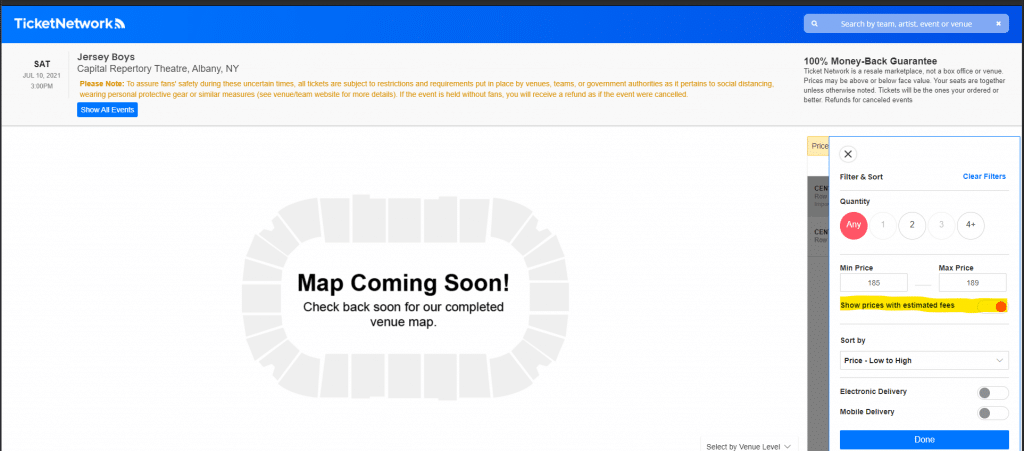
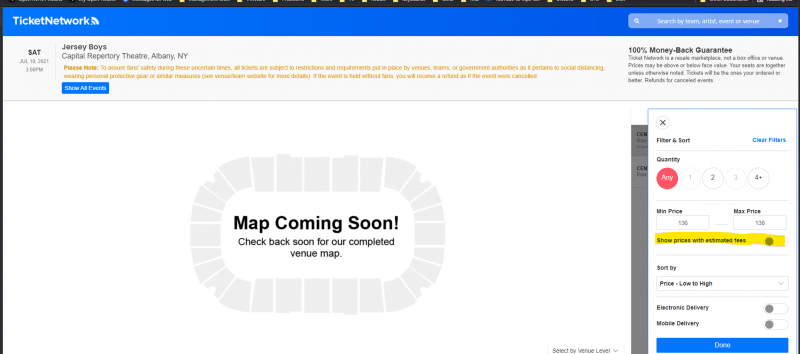
As Vaccaro pointed out at the workshop, his company has also piloted true all-in pricing platforms, including MegaSeats (which shows all-in pricing on all tickets, without the need for a toggle) and Ticket Club, which offers members tickets at wholesale discount with all-in pricing, though non-members do see a service charge added to the price unless they opt to grab a membership along with their purchase.
StubHub and SeatGeek are also offering a pricing toggle for consumers visiting their marketplaces which want to see all-in pricing. StubHub also served as a cautionary tale for the risks of doing all-in pricing by default when competitors are hiding fees, having lost substantial market share when it went to an all-in model several years ago before switching back to avoid continued losses to competitors who hid fees.
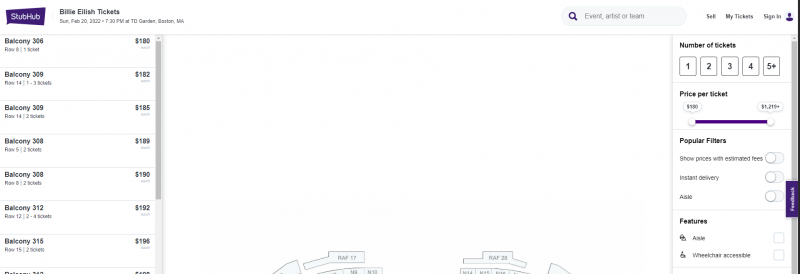
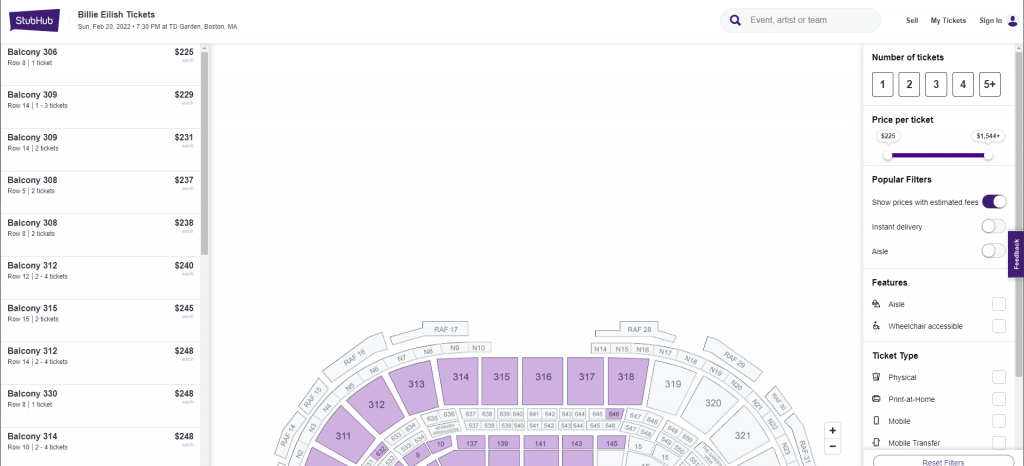
Even Ticketmaster, which has drawn legal fire for so-called “drip” pricing systems on both its primary and secondary ticketing systems, has begun offering the all-in pricing toggle in many instances.
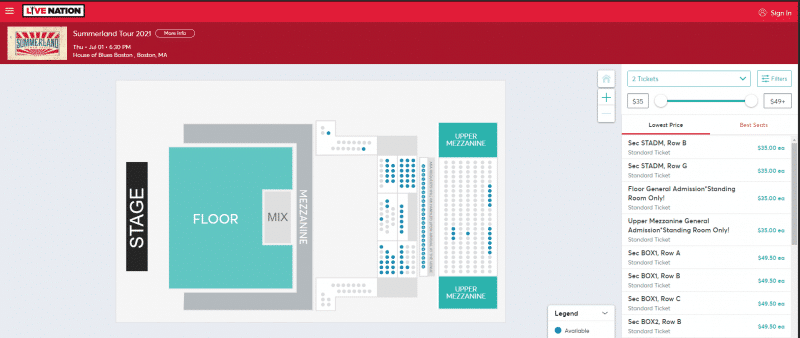
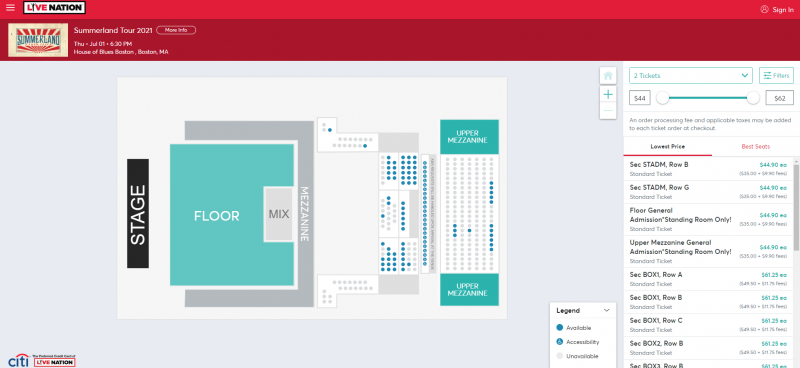
The exceptions to this dramatic shift appear to be Vivid Seats and AXS. Neither offers consumers the option of viewing all-in pricing on any tickets based on our research. AXS straddles the line, operating as both a primary ticketing marketplace and a resale marketplace, while Vivid is strictly a resale marketplace.
Consumers shopping for tickets are still shown only an unobtainable low price when searching on these marketplaces. Vivid Seats actually requires two steps of consumer information to be entered before it will cough up a true price that the customer has to pay for tickets on its systems, with fees obscured by a dropdown menu even after entering both an email address and payment details to be shown the full price.
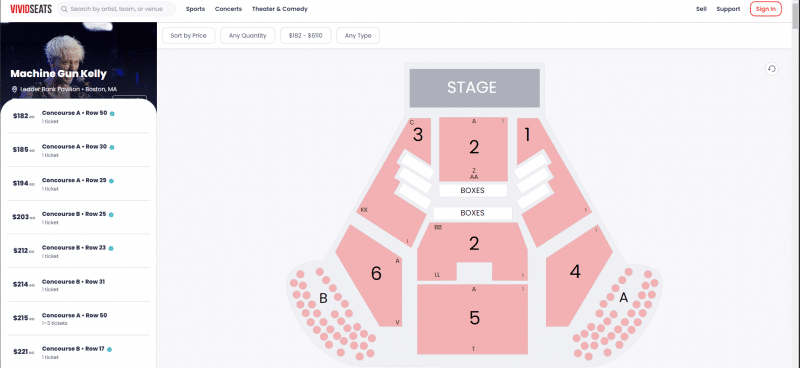
TicketNews contacted Vivid Seats to ask if the company had plans to shift to an all-in model any time soon, or if it would require legal intervention by the FTC or legislative action to do so. No response was received by press time.
As legislatures across the United States continue to look at the ticketing landscape and consider consumer-friendly action against what many considered to be a system rigged against the attendees, the shift to at least offering a toggle that allows all-in prices to be viewed on search is a positive step. What remains to be seen is whether or not the holdouts will choose to join their competitors in the action that the FTC so strongly suggested in 2019, or remain steadfast in their efforts to hide the true consumer price until forced to change.




